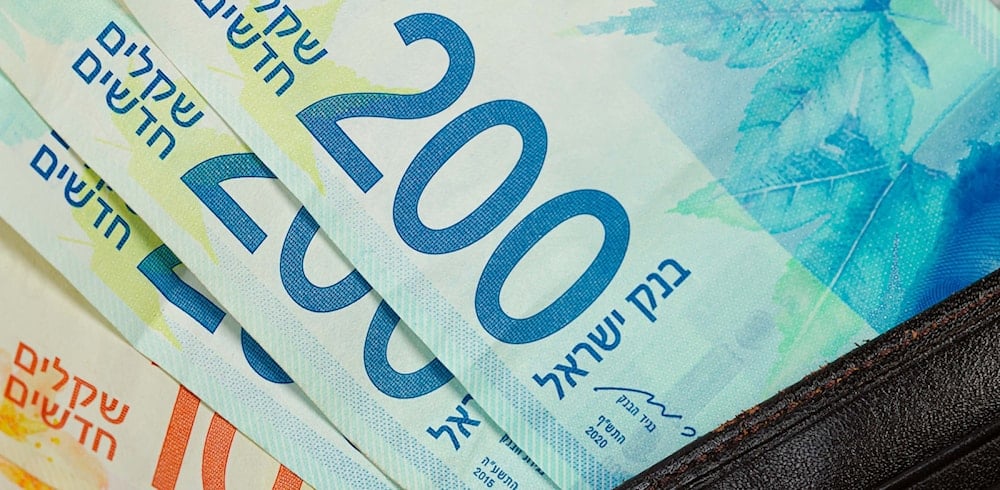Shekel weakens, TASE drops amid fears of Israeli strike on Iran
Fears of an Israeli strike on Iran and stalled nuclear talks push the shekel down and Tel Aviv stocks into sharp decline.
-

An image of 700 Israeli Shekels appears in this undated photo in Tel Aviv (AFP)
The Israeli shekel weakened sharply, and the Tel Aviv Stock Exchange (TASE) fell on Thursday amid growing fears of an imminent Israeli attack on Iran, Globes reported. The sharp downturn followed remarks from US President Donald Trump acknowledging that talks with Iran over its nuclear program had stalled, fueling speculation of rising military tensions.
In mid-morning trading, the Tel Aviv 35 Index was down 2.19% to 2,676.79 points, while the Tel Aviv 125 Index dropped 2.49% to 2,685.76.
Almost all stocks were in negative territory, with the banking sector leading the losses. Defense electronics firm Elbit Systems bucked the trend, rising 1.25% on expectations of increased security demand.
In the foreign exchange market, the shekel saw sharp declines against major currencies. The shekel-dollar exchange rate rose 1% to NIS 3.562/$, while the shekel-euro rate climbed 1.28% to NIS 4.105/€. Volatility in the currency market reflected investor fears of a potential military escalation involving "Israel" and Iran.
Or Poria, chairman of Poria Finance, said, “The foreign exchange markets are starting the day with sharp volatility, with the shekel weakening significantly against major currencies."
"The backdrop is a surge in market expectations of a possible Israeli attack on Iran.”
TASE sees broad losses, banks and tech hit
Poria pointed to additional factors contributing to the instability, including a perceived market-unfriendly Israeli government and rising oil prices.
“Despite the current volatility, there is no change in the medium- and long-term estimates, in which the shekel is expected to strengthen again,” he added.
The sharp drop on the Tel Aviv Stock Exchange is being seen as part of a risk-off trend as investors brace for geopolitical shocks.
Analysts say that financial markets are increasingly sensitive to security developments in the region, especially amid ongoing political tensions.
Modi Shafrir, chief market strategist at Bank Hapoalim, said recent developments point to increased military readiness by both the US and "Israel".
“In the last 24 hours, reports emerged that the US is vacating embassies. US President Trump said the US is ready to strike if needed, and Israel is also reportedly prepared to act," he told Globes.
Shafrir noted that while some of the aggressive rhetoric could be part of a negotiating strategy, the tone has shifted. “Trump previously said they were moving closer to a deal, but now the messages are more hawkish. That’s affecting oil prices and the shekel.”
Oil and gold prices climb amid geopolitical tension
Alongside market declines and currency volatility, commodities have also surged. Global oil prices rose sharply on fears of supply disruption, while gold jumped as investors sought safe-haven assets.
Shafrir added that a potential Israeli attack could push the shekel lower in the short term, depending on the outcome.
“If the attack removes the Iranian nuclear threat, it could stabilize markets in the long run. But if it escalates regional instability, it will negatively affect the shekel and broader economic sentiment.”
As uncertainty builds over the future of Iran's nuclear talks and regional security, traders and analysts alike are bracing for further volatility across currency, equity, and commodity markets.

 3 Min Read
3 Min Read










